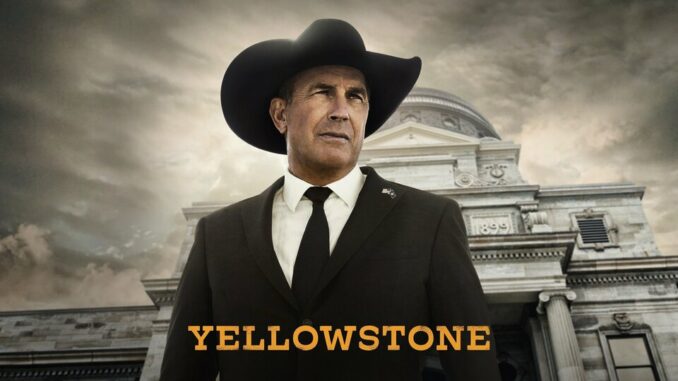
The Yellowstone Universe: A Sprawling Legacy Forged in the Crucible of the American West
The allure of the American West, a land of rugged beauty, unforgiving landscapes, and intertwined legacies of violence and resilience, has always held a captivating power over the cultural imagination. Taylor Sheridan’s “Yellowstone” tapped into this primal appeal, igniting a cultural phenomenon that has since blossomed into a sprawling universe, encompassing prequels, spin-offs, and whispers of future expansions. From the dust-choked trails of “1883” to the simmering tensions of “1923,” and the tantalizing promise of Beth Dutton and Rip Wheeler-centric narratives, the Yellowstone Universe is more than just a television franchise; it’s an ambitious exploration of the enduring, and often brutal, story of the American West, its impact on the Dutton family, and its lasting resonance in contemporary America.
At the heart of this expanding narrative lies the promise of generational continuity. “1883,” the inaugural prequel, served as a harrowing origin story, laying bare the sacrifices and hardships endured by James and Margaret Dutton as they journeyed west to claim the land that would eventually become the Yellowstone Ranch. The series, with its unflinching portrayal of disease, starvation, and relentless violence, etched a stark picture of the American dream achieved at an immense cost. It established the Duttons not as glamorous landowners, but as survivors, forged in the fires of adversity, their claim to the land stained with the blood and tears of those who came before. The success of “1883” proved that audiences were hungry for more than just modern-day drama; they were captivated by the roots of the Dutton legacy, the very foundation upon which the entire empire was built.
“1923” shifted the lens, zooming in on a later generation of Duttons navigating the hardships of the Great Depression and Prohibition. Facing cattle raids, drought, and the looming threat of modernization, Jacob and Cara Dutton, portrayed with captivating grit by Harrison Ford and Helen Mirren, fought tooth and nail to protect their ranch and their way of life. This iteration of the Yellowstone story broadened the scope, delving into the political and economic forces that shaped the West in the early 20th century. It highlighted the ongoing struggles faced by ranchers and the constant threat of losing everything they had worked for, echoing the anxieties of the contemporary “Yellowstone” and reinforcing the cyclical nature of conflict and survival.
The enduring popularity of “Yellowstone” itself stems from its ability to blend modern anxieties with the timeless allure of the Western genre. The Dutton family, led by the formidable John Dutton III, played by Kevin Costner, embodies the tension between tradition and progress. They are fiercely protective of their land and their heritage, often resorting to morally ambiguous, even brutal, tactics to defend it. While John Dutton’s methods are often questionable, his unwavering dedication to his family and his land resonates with viewers who long for a simpler time, a time when values were clearly defined and loyalties unwavering.
However, the truly captivating element of the “Yellowstone” universe lies in its complex characters. Beth Dutton, the fiercely intelligent and unapologetically ruthless daughter, stands out as a particularly compelling figure. Her sharp wit, unwavering loyalty, and deeply wounded soul make her both terrifying and sympathetic. Similarly, Rip Wheeler, the fiercely loyal and undeniably dangerous ranch hand, embodies the code of the West: unwavering loyalty, silent strength, and a willingness to do whatever it takes to protect his family and his land. The tantalizing possibility of spin-offs centered around these two characters speaks to the power of their individual narratives and the potential for further exploration of their complex relationship and their respective demons. A Beth Dutton spin-off could delve deeper into her cutthroat business acumen and the psychological wounds that drive her actions, while a Rip Wheeler series could explore his mysterious past and his unwavering devotion to the Dutton family.
The expansion of the “Yellowstone” universe is not without its critics. Some argue that the proliferation of prequels and spin-offs risks diluting the original story and sacrificing quality for quantity. Concerns have also been raised about the romanticized portrayal of violence and the perpetuation of certain Western tropes. However, the success of the franchise suggests that audiences are willing to overlook these shortcomings, drawn in by the compelling characters, the stunning visuals, and the enduring themes of family, loyalty, and survival in a land that continues to fascinate and challenge us.
Ultimately, the “Yellowstone” Universe is a modern-day saga that resonates because it taps into something deeply ingrained in the American psyche. It’s a story about the pursuit of the American dream, the cost of that pursuit, and the enduring legacy of violence and resilience that defines the West. The expanding narrative, from the wagon trails of “1883” to the boardrooms of “Yellowstone,” and the tantalizing prospect of delving deeper into the lives of beloved characters like Beth and Rip, suggests that the Dutton family’s story, and the story of the American West, is far from over. It’s a story that continues to evolve, adapt, and captivate, offering a glimpse into the heart of a nation grappling with its past and its future.
